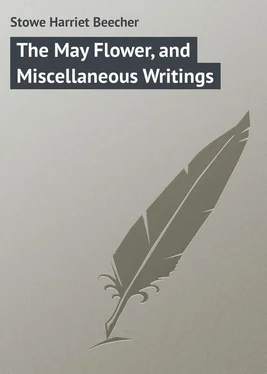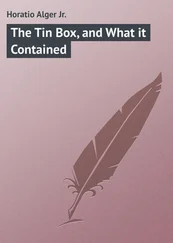Harriet Stowe - The May Flower, and Miscellaneous Writings
Здесь есть возможность читать онлайн «Harriet Stowe - The May Flower, and Miscellaneous Writings» — ознакомительный отрывок электронной книги совершенно бесплатно, а после прочтения отрывка купить полную версию. В некоторых случаях можно слушать аудио, скачать через торрент в формате fb2 и присутствует краткое содержание. Жанр: foreign_prose, на английском языке. Описание произведения, (предисловие) а так же отзывы посетителей доступны на портале библиотеки ЛибКат.
- Название:The May Flower, and Miscellaneous Writings
- Автор:
- Жанр:
- Год:неизвестен
- ISBN:нет данных
- Рейтинг книги:4 / 5. Голосов: 1
-
Избранное:Добавить в избранное
- Отзывы:
-
Ваша оценка:
- 80
- 1
- 2
- 3
- 4
- 5
The May Flower, and Miscellaneous Writings: краткое содержание, описание и аннотация
Предлагаем к чтению аннотацию, описание, краткое содержание или предисловие (зависит от того, что написал сам автор книги «The May Flower, and Miscellaneous Writings»). Если вы не нашли необходимую информацию о книге — напишите в комментариях, мы постараемся отыскать её.
The May Flower, and Miscellaneous Writings — читать онлайн ознакомительный отрывок
Ниже представлен текст книги, разбитый по страницам. Система сохранения места последней прочитанной страницы, позволяет с удобством читать онлайн бесплатно книгу «The May Flower, and Miscellaneous Writings», без необходимости каждый раз заново искать на чём Вы остановились. Поставьте закладку, и сможете в любой момент перейти на страницу, на которой закончили чтение.
Интервал:
Закладка:
My uncle laid him down, and looked one moment at his beautiful face. It was too much for his principles, too much for his consistency, and "he lifted up his voice and wept."
The next morning was the Sabbath – the funeral day – and it rose with "breath all incense and with cheek all bloom." Uncle Abel was as calm and collected as ever; but in his face there was a sorrow-stricken appearance touching to behold. I remember him at family prayers, as he bent over the great Bible and began the psalm, "Lord, thou hast been our dwelling-place in all generations." Apparently he was touched by the melancholy splendor of the poetry, for after reading a few verses he stopped. There was a dead silence, interrupted only by the tick of the clock. He cleared his voice repeatedly, and tried to go on, but in vain. He closed the book, and kneeled down to prayer. The energy of sorrow broke through his usual formal reverence, and his language flowed forth with a deep and sorrowful pathos which I shall never forget. The God so much reverenced, so much feared, seemed to draw near to him as a friend and comforter, his refuge and strength, "a very present help in time of trouble."
My uncle rose, and I saw him walk to the room of the departed one. He uncovered the face. It was set with the seal of death; but O, how surpassingly lovely! The brilliancy of life was gone, but that pure, transparent face was touched with a mysterious, triumphant brightness, which seemed like the dawning of heaven.
My uncle looked long and earnestly. He felt the beauty of what he gazed on; his heart was softened, but he had no words for his feelings. He left the room unconsciously, and stood in the front door. The morning was bright, the bells were ringing for church, the birds were singing merrily, and the pet squirrel of little Edward was frolicking about the door. My uncle watched him as he ran first up one tree, and then down and up another, and then over the fence, whisking his brush and chattering just as if nothing was the matter.
With a deep sigh Uncle Abel broke forth, "How happy that cretur' is! Well, the Lord's will be done."
That day the dust was committed to dust, amid the lamentations of all who had known little Edward. Years have passed since then, and all that is mortal of my uncle has long since been gathered to his fathers; but his just and upright spirit has entered the glorious liberty of the sons of God. Yes, the good man may have had opinions which the philosophical scorn, weaknesses at which the thoughtless smile; but death shall change him into all that is enlightened, wise, and refined; for he shall awake in "His" likeness, and "be satisfied."
AUNT MARY
Since sketching character is the mode, I too take up my pencil, not to make you laugh, though peradventure it may be – to get you to sleep.
I am now a tolerably old gentleman – an old bachelor, moreover – and, what is more to the point, an unpretending and sober-minded one. Lest, however, any of the ladies should take exceptions against me in the very outset, I will merely remark, en passant , that a man can sometimes become an old bachelor because he has too much heart as well as too little.
Years ago – before any of my readers were born – I was a little good-for-nought of a boy, of precisely that unlucky kind who are always in every body's way, and always in mischief. I had, to watch over my uprearing, a father and mother, and a whole army of older brothers and sisters. My relatives bore a very great resemblance to other human beings, neither good angels nor the opposite class, but, as mathematicians say, "in the mean proportion."
As I have before insinuated, I was a sort of family scape-grace among them, and one on whose head all the domestic trespasses were regularly visited, either by real, actual desert or by imputation.
For this order of things, there was, I confess, a very solid and serious foundation, in the constitution of my mind. Whether I was born under some cross-eyed planet, or whether I was fairy-smitten in my cradle, certain it is that I was, from the dawn of existence, a sort of "Murad the Unlucky;" an out-of-time, out-of-place, out-of-form sort of a boy, with whom nothing prospered.
Who always left open doors in cold weather? It was Henry. Who was sure to upset his coffee cup at breakfast, or to knock over his tumbler at dinner, or to prostrate saltcellar, pepper box, and mustard pot, if he only happened to move his arm? Why, Henry. Who was plate breaker general for the family? It was Henry. Who tangled mamma's silks and cottons, and tore up the last newspaper for papa, or threw down old Ph[oe]be's clothes horse, with all her clean ironing thereupon? Why, Henry.
Now all this was no "malice prepense" in me, for I solemnly believe that I was the best-natured boy in the world; but something was the matter with the attraction of cohesion, or the attraction of gravitation – with the general dispensation of matter around me – that, let me do what I would, things would fall down, and break, or be torn and damaged, if I only came near them; and my unluckiness in any matter seemed in exact proportion to my carefulness.
If any body in the room with me had a headache, or any kind of nervous irritability, which made it particularly necessary for others to be quiet, and if I was in an especial desire unto the same, I was sure, while stepping around on tiptoe, to fall headlong over a chair, which would give an introductory push to the shovel, which would fall upon the tongs, which would animate the poker, and all together would set in action two or three sticks of wood, and down they would come together, with just that hearty, sociable sort of racket, which showed that they were disposed to make as much of the opportunity as possible.
In the same manner, every thing that came into my hand, or was at all connected with me, was sure to lose by it. If I rejoiced in a clean apron in the morning, I was sure to make a full-length prostration thereupon on my way to school, and come home nothing better, but rather worse. If I was sent on an errand, I was sure either to lose my money in going, or my purchases in returning; and on these occasions my mother would often comfort me with the reflection, that it was well that my ears were fastened to my head, or I should lose them too. Of course, I was a fair mark for the exhortatory powers, not only of my parents, but of all my aunts, uncles, and cousins, to the third and fourth generation, who ceased not to reprove, rebuke, and exhort with all long-suffering and doctrine.
All this would have been very well if nature had not gifted me with a very unnecessary and uncomfortable capacity of feeling , which, like a refined ear for music, is undesirable, because, in this world, one meets with discord ninety-nine times where it meets with harmony once. Much, therefore, as I furnished occasion to be scolded at, I never became used
Конец ознакомительного фрагмента.
Текст предоставлен ООО «ЛитРес».
Прочитайте эту книгу целиком, купив полную легальную версию на ЛитРес.
Безопасно оплатить книгу можно банковской картой Visa, MasterCard, Maestro, со счета мобильного телефона, с платежного терминала, в салоне МТС или Связной, через PayPal, WebMoney, Яндекс.Деньги, QIWI Кошелек, бонусными картами или другим удобным Вам способом.
Интервал:
Закладка:
Похожие книги на «The May Flower, and Miscellaneous Writings»
Представляем Вашему вниманию похожие книги на «The May Flower, and Miscellaneous Writings» списком для выбора. Мы отобрали схожую по названию и смыслу литературу в надежде предоставить читателям больше вариантов отыскать новые, интересные, ещё непрочитанные произведения.
Обсуждение, отзывы о книге «The May Flower, and Miscellaneous Writings» и просто собственные мнения читателей. Оставьте ваши комментарии, напишите, что Вы думаете о произведении, его смысле или главных героях. Укажите что конкретно понравилось, а что нет, и почему Вы так считаете.












